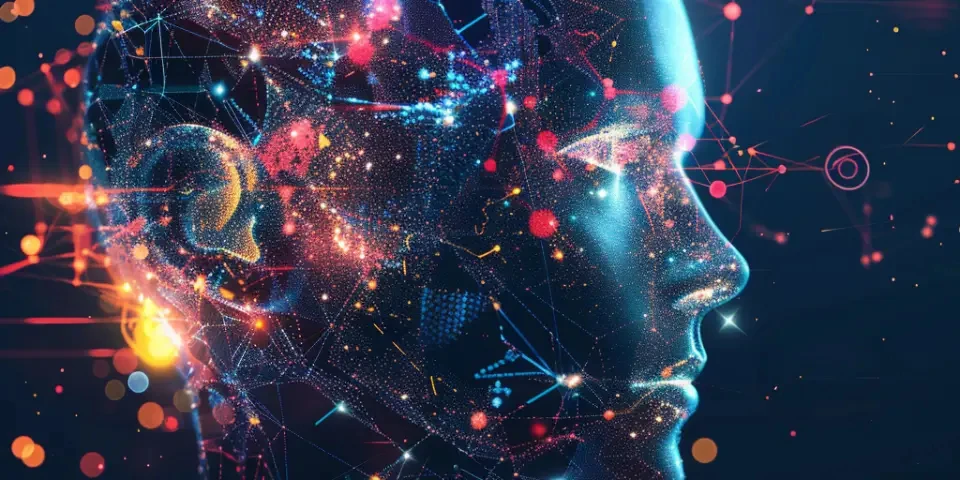AI Social Apps Connecting Users in a Whole New Way
In today's digital age, social media has become an integral part of our daily lives. From sharing updates, photos, and videos to connecting with friends and family, social media platforms have transformed the way we communicate and interact with others. However, with the advancements in artificial intelligence (AI), a new breed of social apps has emerged, revolutionizing how users connect with one another. These AI-powered social apps bring a whole new level of personalization and convenience to our social interactions, creating a more immersive and engaging online experience.
1. Personalized Recommendations:
One of the key benefits of AI social apps is their ability to provide highly personalized content and recommendations. By analyzing user data such as interests, preferences, and browsing history, these apps can suggest relevant content, events, and even potential connections. Whether it's recommending a new book based on your reading habits or suggesting a meetup group based on your hobbies, AI social apps make it easier for users to discover new experiences and connect with like-minded individuals.

Such apps can also provide personalized news and updates tailored to the user's interests. For example, the news aggregator app "Flipboard" uses AI algorithms to curate news articles from various sources and presents them in a personalized magazine-style format.
2. Enhanced Social Search:
AI-powered social apps have greatly improved the search functionality, allowing users to find and connect with specific individuals or groups more efficiently. These apps use machine learning algorithms to analyze user profiles, interests, and social connections, enabling them to provide accurate search results based on relevance and proximity.
Take, for instance, the social networking app "LinkedIn," which leverages AI to deliver accurate search results for professionals based on their skills, industry, and connections. This not only helps users find potential job opportunities but also facilitates networking and professional collaborations.
3. Intelligent Chatbots:
AI chatbots have become increasingly common in social apps, providing users with instant assistance and support. These chatbots use natural language processing and machine learning algorithms to understand user queries and provide relevant responses. Whether it's answering frequently asked questions, providing recommendations, or resolving issues, chatbots offer a seamless user experience.
The popular messaging app "Messenger" by Facebook has integrated AI chatbots to provide various services, such as news updates, weather forecasts, and even ordering food from local restaurants. These intelligent chatbots enhance user engagement and simplify tasks within the app.
4. Real-Time Language Translation:
Language barriers can often hinder effective communication, especially in a diverse global community. AI social apps are breaking down these barriers by integrating real-time language translation capabilities. These apps use AI algorithms to analyze and interpret multilingual conversations, enabling users to communicate seamlessly with others from different linguistic backgrounds.
An example of such technology is the messaging app "WhatsApp," which has integrated AI translation features. Users can send messages in their preferred language, and the app automatically translates them for the recipient, eliminating language barriers and fostering better communication.
5. Emotion Recognition:
Understanding and expressing emotions is a fundamental aspect of human interaction. AI social apps are incorporating emotion recognition technology, allowing users to better convey their feelings in online conversations. These apps use facial recognition and natural language processing to analyze emotional cues, enabling users to express themselves more effectively.
The video messaging app "Snapchat" utilizes emotion recognition technology to apply various filters and effects based on the user's facial expressions. This feature adds a fun and interactive element to online conversations, enhancing user engagement and self-expression.
6. Enhanced Privacy and Security:
Privacy and security concerns are paramount in today's digital landscape. AI social apps are addressing these concerns by implementing advanced security measures and privacy settings. These apps use AI algorithms to identify and prevent suspicious activities, such as fake profiles or malicious content.
Additionally, AI-powered authentication methods, such as facial recognition and voice recognition, provide an added layer of security. This ensures that only authorized users can access and interact with the app's features and content.
7. Virtual Reality Integration:
Virtual reality (VR) is revolutionizing the way we experience social interactions. AI social apps are incorporating VR technology to provide users with immersive and interactive experiences. Whether it's attending virtual events, exploring virtual worlds, or interacting with avatars, these apps bring a new dimension to socializing online.
An example of such an app is "VRChat," which allows users to create and customize their virtual avatars, socialize with others in virtual environments, and participate in various activities and events. This integration of AI and VR creates a truly immersive and lifelike social experience.
FAQs:
1. Can AI social apps replace traditional social media platforms?
While AI social apps offer enhanced features and personalization, they are not intended to replace traditional social media platforms. Rather, they complement existing social media platforms and provide users with additional functionalities and conveniences.
2. Are AI social apps safe for user data and privacy?
AI social apps prioritize user data privacy and security. By utilizing advanced AI algorithms, these apps employ stringent security measures to protect user data and prevent unauthorized access or misuse. However, it's always important for users to review and understand the app's privacy policy and settings to ensure their data is adequately protected.
3. Can AI social apps understand user emotions accurately?
AI social apps employ advanced emotion recognition technology, which has improved significantly over time. However, accurately understanding and interpreting human emotions is a complex task. While these apps can provide a general sense of emotional cues, it's essential to consider context and individual differences when interpreting emotions in online interactions.
References:
1. Johnson, J., Brooks, G., & Deterding, S. (2019). "Ethical Guidelines for Social VR." XR Ethics Manifesto.
2. Ng, A. (2021). "Artificial Intelligence and Social Media Transformation: The Effects of Social Media Algorithms, Automated Moderation, and Sentiment Analysis." International Journal of Communication.
Explore your companion in WeMate